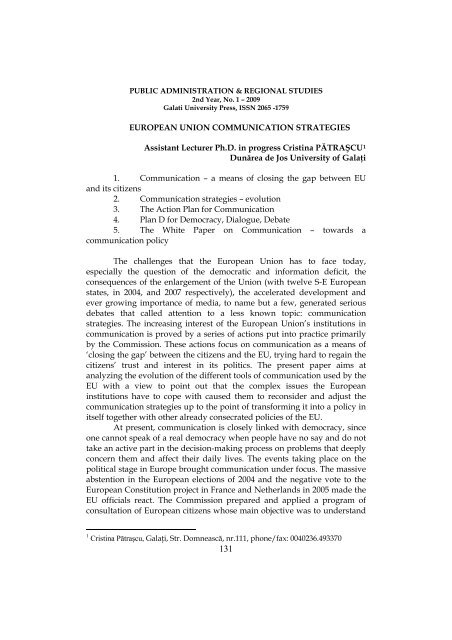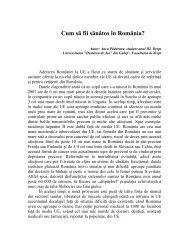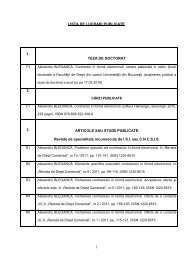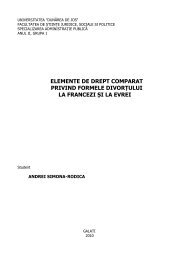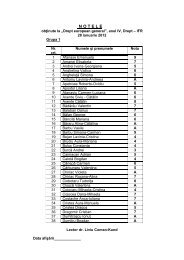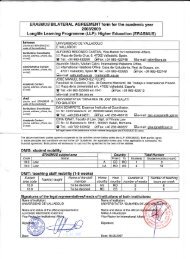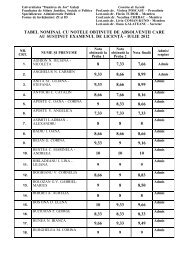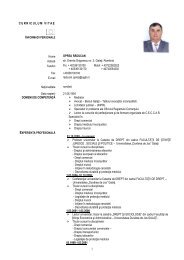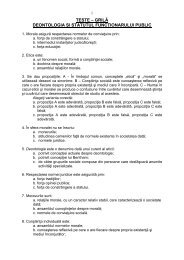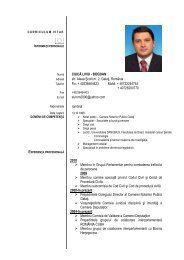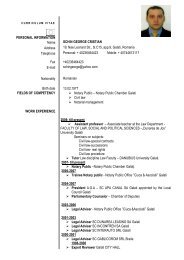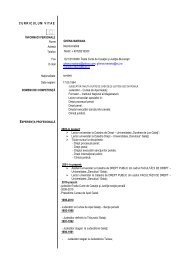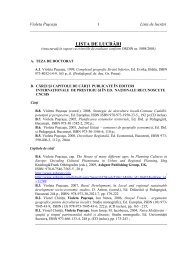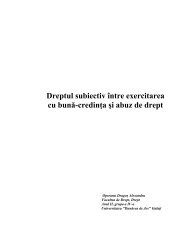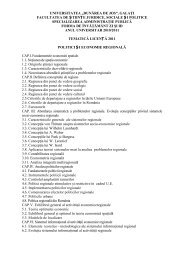regional studies public administration - Facultatea de Drept ...
regional studies public administration - Facultatea de Drept ...
regional studies public administration - Facultatea de Drept ...
Create successful ePaper yourself
Turn your PDF publications into a flip-book with our unique Google optimized e-Paper software.
PUBLIC ADMINISTRATION & REGIONAL STUDIES<br />
2nd Year, No. 1 – 2009<br />
Galati University Press, ISSN 2065 -1759<br />
EUROPEAN UNION COMMUNICATION STRATEGIES<br />
Assistant Lecturer Ph.D. in progress Cristina PĂTRAŞCU 1<br />
Dunărea <strong>de</strong> Jos University of Galaţi<br />
1. Communication – a means of closing the gap between EU<br />
and its citizens<br />
2. Communication strategies – evolution<br />
3. The Action Plan for Communication<br />
4. Plan D for Democracy, Dialogue, Debate<br />
5. The White Paper on Communication – towards a<br />
communication policy<br />
The challenges that the European Union has to face today,<br />
especially the question of the <strong>de</strong>mocratic and information <strong>de</strong>ficit, the<br />
consequences of the enlargement of the Union (with twelve S-E European<br />
states, in 2004, and 2007 respectively), the accelerated <strong>de</strong>velopment and<br />
ever growing importance of media, to name but a few, generated serious<br />
<strong>de</strong>bates that called attention to a less known topic: communication<br />
strategies. The increasing interest of the European Union’s institutions in<br />
communication is proved by a series of actions put into practice primarily<br />
by the Commission. These actions focus on communication as a means of<br />
‘closing the gap’ between the citizens and the EU, trying hard to regain the<br />
citizens’ trust and interest in its politics. The present paper aims at<br />
analyzing the evolution of the different tools of communication used by the<br />
EU with a view to point out that the complex issues the European<br />
institutions have to cope with caused them to reconsi<strong>de</strong>r and adjust the<br />
communication strategies up to the point of transforming it into a policy in<br />
itself together with other already consecrated policies of the EU.<br />
At present, communication is closely linked with <strong>de</strong>mocracy, since<br />
one cannot speak of a real <strong>de</strong>mocracy when people have no say and do not<br />
take an active part in the <strong>de</strong>cision-making process on problems that <strong>de</strong>eply<br />
concern them and affect their daily lives. The events taking place on the<br />
political stage in Europe brought communication un<strong>de</strong>r focus. The massive<br />
abstention in the European elections of 2004 and the negative vote to the<br />
European Constitution project in France and Netherlands in 2005 ma<strong>de</strong> the<br />
EU officials react. The Commission prepared and applied a program of<br />
consultation of European citizens whose main objective was to un<strong>de</strong>rstand<br />
1 Cristina Pătraşcu, Galaţi, Str. Domnească, nr.111, phone/fax: 0040236.493370<br />
131


